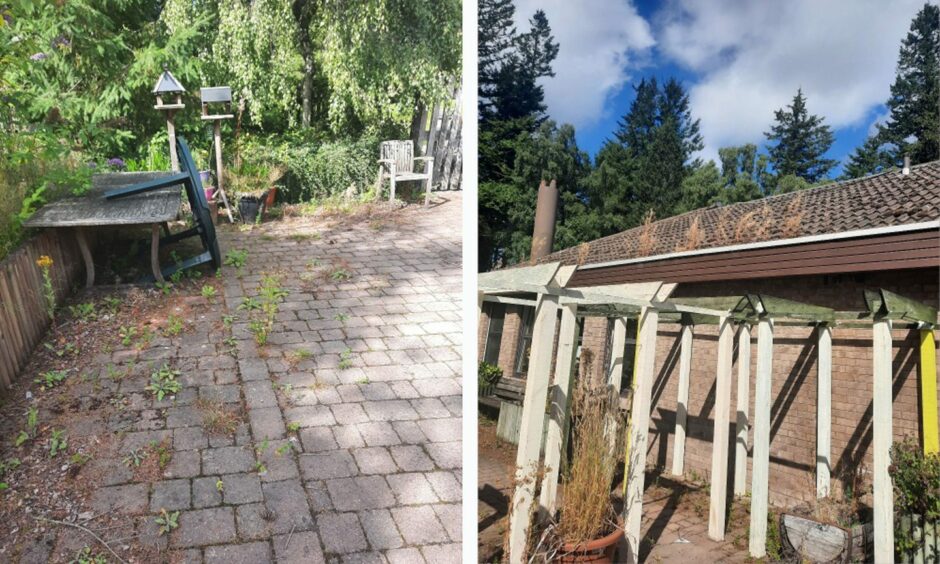A health watchdog is investigating an Aberdeenshire hospital after nursing notes revealed a dementia patient was transferred to a care home in scrubs.
The Mental Welfare Commission believes there was a failure to protect the patient’s dignity after it emerged they had no clean clothes.
The incident happened at the Scolty Ward at Glen O’Dee Hospital in Banchory, and was uncovered during a local visit by the commission.
It has prompted concern about the discharge planning process at the hospital.
A spokesman said: “Unfortunately we found that many of the care plans had been completed on admission and had not been updated since.
“Following the assessment period, we would expect to see a comprehensive individualised care plan that details interventions to support the patient to meet their identified goals.
“As these were not consistently being done, many of the reviews and evaluations did not correspond with the care plans and it was difficult to know the outcome of the assessment, as care plans had not been updated.”
They said this made it hard to see if patients were making progress during their time at the hospital, and suggested reports should be “very person centric”.
Were patients given drugs unnecessarily?
Glen O’Dee’s Scolty Ward focuses on the psychiatric care of the elderly and focuses on dementia assessments.
But the watchdog raised concern that some patients may have been given anti-psychotic drugs unnecessarily, due to the lack of detail in the reports.
Their report adds: “Many care plans recorded the use of non-medical strategies to support patients, but these were not specified in the care plan.
“Interventions such as ‘use distraction techniques’ were mentioned to support the patient, but there were no descriptions of what these actually were, nor identifying the triggers that were causing the patients distress.
“Therefore we found that some patients were given psychotropic medication to reduce symptoms of stress and distress behaviours, rather than utilising non-medical interventions.”
The report also expresses “significant concern” about the “negative and pejorative” language used by nursing and ward staff giving the impression that staff lacked in understanding of dementia-related illnesses.
The spokesman added: “We raised our concerns with senior managers about this on the day, as we felt this situation required to be urgently addressed. We shall follow up with senior managers to ensure appropriate action has been taken.”
A spokeswoman for Aberdeenshire Health and Social Care Partnership said action was being taken immediately to address the commission’s concerns.
She said: “The report we have received from the Mental Welfare Commission for Scotland is not as positive as we would have wished.
“All concerns and recommendations within the report are being proactively addressed. We have been supporting the highly skilled team at Scolty and working closely with our specialist mental health nursing team and as a result we have a robust and transformational action plan in place.”
Concerns regarding state of Glen O’Dee grounds
Last month, a family member of a patient at Glen O’Dee raised concern about the standard of the building, and its garden.
Joe Durno spoke out after visiting his cousin William Durno, 86, who was transferred to the Banchory hospital from Cornhill Hospital in Aberdeen – unbeknown to his wife, who was in hospital herself for an operation.
Mr Durno, 69, hit out at the “awful” state of the hospital grounds, including the garden and the original building which was left burnt-out following a blaze in 2016.
He claimed the patients are staying in a “complete and utter mess” and that he was asked to take his cousin’s soiled laundry home to wash.
He said: “They’re being left to rot. These patients have been forgotten by the NHS – they’re people, they’re human beings.”
Aberdeenshire Health and Social Care Partnership said at the time: “The safety and wellbeing of all of our patients is of the utmost importance and we will be happy to discuss any concerns families may have.
“We fully recognise that outdoor space is beneficial in improving patients’ wellbeing and to manage patient stress and distress.
“We have referred to our estates team as a priority and are working with local community groups to ensure that our garden space is brought up to a safe standard which is therapeutic for patients and families.”


Conversation